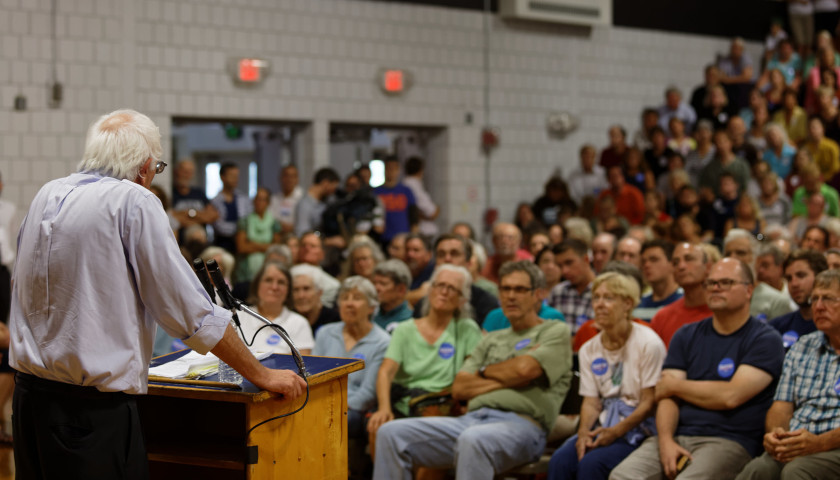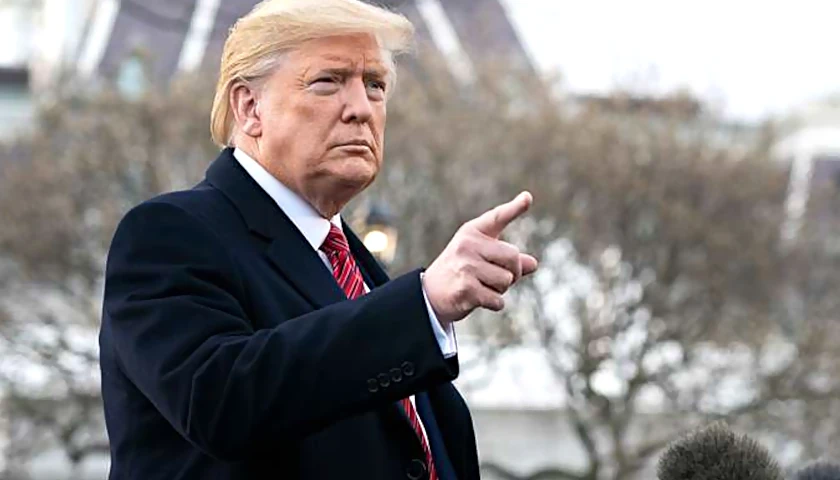by Jeffrey A. Tucker
Do Something, goes the suddenly popular chant. In response to the wave of mass killings this year, it’s being shouted at any available political figure. Be careful what you ask for.
It’s hard to imagine anything good can come of this slogan. To demand the state do something, anything, is short sighted and even dangerous. A politician is always willing to do something. Do the right thing is another matter entirely.
Let me say, however, that I understand the motive for the chant. Why do we have states? Why do we elect political managers of them? The elevator pitch is that the state protects us from violent disruptions in our attempt to live better lives in peace with others. This is the bare minimum that has always been asked of the state.
Evidently, the state is not doing its job. People are demanding to know why.
But here is a truth. The state is limited in its competence. Utopia is not born of more laws, restrictions, regulations, and prohibitions. For this reason, not every tragedy has a political solution.
The shooter in El Paso was possessed by an evil longing to cause mass death, and his weapon of choice was a gun. As with the other mass killings, the desire to kill even more was thwarted by heroes who risked their lives to stop the bloodshed. Those who take such risks are both private individuals and the police.
The most obvious strategy to “do something” will be further to restrict guns but you have to think through what this means. Do we really want evil people to enter into spaces where they can feel assured that guns are properly controlled here, that their murderous longings are more likely to be unchecked? More gun control would very likely have done nothing to stop these killers, any more than gun-free zones have made schools safer.
One indisputable result of more gun control, even that which seems limited and reasonable, will be a further step toward the monopolization of weaponry in the hands of the police unions and public-sector security officials. But that should give no one confidence that this would be a step toward safety. Those who advocate “gun control” are reluctant to admit that they might be inadvertently pushing gun monopolization by the least-trustworthy institution in society.
Communities, companies, surveilling technologies, punishment, and deterrence can assist in making the world a more peaceful place. Institutions that grant people opportunities in life so that they stop romanticizing death are essential. In the end, however, human evil and terrible tragedy such as we’ve seen have only one solution: a culture of peace and cooperation so widespread and so penetrating that the world around us is thereby made safe. There is no easy path to that place. But we must try.
What is not helping us get on that path is this politics of group-based revenge in which one tribe seeks the demoralization, degradation, and disempowerment of the enemy tribe. No matter how you slice it, such thinking can only lead to more abuse and violence, whether perpetrated by lone actors or whole legislatures.
Sadly, this is the point where our main political debate is descending. The left and right both have their own versions of this zero-sum calculus: that group must be extinguished so that my group can thrive. These groups can be races, classes, or whole nations. The claim, no matter how false and dangerous, has become the daily prattle of our political culture. That this pattern of thinking would inspire killers is not entirely surprising. Crazy, scary, murderous people hear this message from leaders and decide to take direct action.
If we really want the political class to do something, my humble suggestion that they stop fomenting tribal wars that fuel hatreds and instead point out the great lesson of modernity that people in all their diversity can work together in peace. There is no substitute for the realization, born of spiritual awakening, that we can all live good lives in healthy and loving cooperation with each other.
– – –
Jeffrey A. Tucker is Editorial Director for the American Institute for Economic Research. He is the author of many thousands of articles in the scholarly and popular press and eight books in 5 languages, most recently The Market Loves You. He speaks widely on topics of economics, technology, social philosophy, and culture. He is available for speaking and interviews via his email.
Photo “Bernie Sanders” by Michael Vardon. CC BY-SA 2.0.




